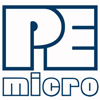Home > On-Demand Archives > Keynote Presentations >
Marketing Malarkey and Some Truths About Ultra-Low Power Design
Jack Ganssle - Watch Now - EOC 2023 - Duration: 01:09:21

Many systems need to run for years from small batteries. Vendors offer many solutions and even more promises. Alas, too often these are, at the best, wildly optimistic. Pick an MCU which only needs one electron a year to remain in a sleep mode and your system will still likely drain the battery in months.
This talk will present the results of 18 months of experiments on battery life, MCU sleep currents, and “sneak” circuits that drain charge from batteries. It is complemented by engineering analysis of real-world systems and what their actual power requirements are. Does PCB contamination effect battery life? Can a big capacitor give a millisecond power boost? What is the effect of temperature on these decisions?
The answers are surprising, and the bottom line is that none of us will achieve the battery lives touted in the trade press.
To achieve years of operation from a coin cell an MCU-based system must use the right components, careful analysis of energy needs and availability, and the proper algorithms in the firmware.
In this talk you’ll learn how to make these tradeoffs. And you may never trust a vendor promise again!
Thanks for sharing your perspective and wisdom!
Watched the recording. Really enoyed Jack's talk again with some helpful takeaways on low power designs.
13:43:02 From Michael Kirkhart : Blathosphere - LOL! 14:04:33 From Keith J : Thanks Jack! How DARE you inject physics and reality into my world. 🤣 14:05:21 From BobF : In summary, matching Theory (classroom) to Practice (workshop/field). 14:06:54 From Amy McNeil : Jack - have you looked at large multi-farad capacitors as power storage sources for microamp power level MCU systems? 14:07:14 From mnapier : Water meters (and others) do use large batteries with a parallel super cap. The cap is sourced by the battery maker to make it economic. But it is a huge cap to hold up over transmission times of ~10 ms. 14:08:12 From Gonzalo : How do supercaps compare to batteries for low power applications? When they could be used? Does it make sense to use them at all? 14:08:14 From maria : On a product we do as you say to measure the battery voltage under max load once per second. However we are thinking to move to doing the same once per half second. Do you have a recommendation on this? We use the measurements to give the customer low batt warnings to pull in the equipment from the field. 14:08:37 From Erwin Pschernig : Thanks Jack! When did your experiements happen? I was involved in such a Ultra low power development About 5 years ago. And spoiler alarm, we detected and did nearly everything you mentioned! In the end we had the luck to incorporate with two battery manufacturers which did all the measurements with us to find a reasonable battery. 14:09:23 From David : Do you know of any tools for assisting in modeling the consumption of system accurately? I've seen tools from ST but they only looked at the MCU and not the rest of the component. Or is it just best to do this yourself with spreadsheets? 14:10:17 From Erwin Pschernig : And at least one of our partners was on your list, so maybe your experiments took place before mine :-) 14:10:38 From Alex Ribero : Do you have any thoughts regarding battery profilers, and battery emulators? 14:12:08 From Keith J : I like the Joulescope 14:13:11 From David : I've also used the Joulescope, it is a very good tool for the money. 14:13:42 From Kevin H : Did you test FD brand coin cells? We had the best performance from these in a single-use coin cell application that delivered a bipolar trapezoidal current waveform. 14:13:54 From Kevin H : +1 for Joulescope! 14:14:09 From Gonzalo : What is a good way to measure the battery voltage without leaking too much power? What if the MCU turns off completely so the VDD goes near zero and the AD input is no longer a high impedance? 14:14:13 From Alex Ribero : We use the Otii Arc (https://www.qoitech.com/products/) 14:14:53 From Kevin H : Keithley makes a good battery simulator, 2281S. 14:15:46 From Alex Ribero : Battery Profiler / Emulator commercial product: https://www.qoitech.com/battery-toolbox/ 14:16:07 From George Addison : Is there any merit to using a low power external timer IC (perhaps something like the TI TPL5010) to fully remove power from the MCU and supporting circuitry in between periods of activity? 14:17:04 From René Andrés Ayoroa : Are there any recommended books or materials for learning low power design? 14:17:37 From Ross K. : Could you comment on how your research has impact on potentially overly optimist data on energy harvesting? 14:17:43 From David : Depending on your system voltage, you can also put a FET at the bottom of your voltage divider to reduce the constant drain from the divider. This will affect your accuracy, but can be compensated for if necessary. We needed to do this to measure a 7V pack on a 1.8V micro, where the divider would draw over 1uA otherwise. 14:19:30 From Michael Kirkhart : One small victory! 14:19:54 From MatthewLai : Thin file solid state battery? 14:20:00 From Sarah : Reacted to "I like the Joulesc..." with 👍 14:20:03 From MatthewLai : film sorry 14:20:29 From Kevin H : Care to discuss clock sources? 14:21:32 From Keith J : plus the capacitance of the clock line itself draws a lot of power 14:22:03 From Amy McNeil : It's all analog. Every dang thing. 14:22:07 From Gonzalo : Embbeded systems are hard to handle and it amaze me how much engineers energy must be invested to know how to use low power modes, circuit designs, consideration, reading datasheets carefully, etc. Low power is expensive to develop I guess 14:22:27 From BobF : Ideally, I suppose, is to 'generate' on-demand as opposed to 'consume' (from storage) on-demand. Applies everywhere! 14:23:38 From Keith J : job security! 14:23:47 From Alex Ribero : Do you have any preferred semiconductor vendor for low power MCUs? 14:23:54 From Gillian Minnehan (she/her) : Reacted to "job security!" with 😃 14:24:09 From mnapier : Reacted to "job security!" with ❤️ 14:24:10 From Ross K. : Low Power Labs makes an inexpensive device that can measure current in the nanoamps: 14:24:11 From David : It can also be expensive to fail when you do things "quickly and cheaply".... 14:24:22 From Ross K. : https://lowpowerlab.com/shop/product/152 14:25:04 From Kevin H : Critical thinking skills! 14:25:32 From Alex Ribero : Do you have any preferred semiconductor vendor for low power MCUs? 14:25:55 From Kevin H : GREAT presentation, Jack! 14:27:41 From MatthewLai : RISC-V is also picking up in the embedded world 14:28:51 From David : Have you seen any efforts to improve recyclability in these IoT and lower power spaces, where we're building many, many small devices? In components, MCU's, etc? 14:29:20 From Amy McNeil : But I LOVE assembler! 14:29:43 From Michael Kirkhart : I also like assembler. 14:30:11 From Phil Kasiecki : As Matthew notes, RISC-V is growing fast. I see a lot happening there the last couple of years. 14:31:22 From Kevin H : Dialog Greenpak devices can handles simple tasks with no software. I replaced an MSP430 medical device with two of these little parts. 14:32:03 From Michael Kirkhart : Always be learning! 14:32:16 From MatthewLai : Reading reading reading 🙂 14:32:34 From Stephane : https://embeddedonlineconference.com/session/Essential_Skills_for_Embedded_Systems_Engineers 14:32:34 From Michael Kirkhart : Reading + actually building stuff! 14:32:59 From Vishwa Perera : Reacted to "Reading + actually b..." with 👍 14:33:05 From Vishwa Perera : Reacted to "Reading reading read..." with 👍 14:33:14 From René Andrés Ayoroa : Is your battery testing circuit diagram available? 14:33:25 From Erwin Pschernig : Understand your hardware an domain 14:33:54 From Michael Kirkhart : An expert is someone who has worked in a narrow field and made every possible mistake. 14:34:08 From Keith J : Amazing presentation and discussion as always Jack. Thank you very much for sharing with us. 14:34:09 From BobF : Thoughts on over-Engineering? For Jack 14:34:31 From Vishwa Perera : Thanks for all the answers. 14:34:38 From David : There's also a handy newsletter you sign up for to continue learning... http://www.ganssle.com/tem-subunsub.html 14:34:44 From Erwin Pschernig : I don't make a mistake twice … I do it Five or six times to be sure :-) 14:35:25 From Michael Kirkhart : According to marketing, the product is always one feature short of making a sale. 14:35:57 From Amy McNeil : Thank you for all the years of sharing your knowledge and experience Jack! 14:36:18 From David : Have you seen any efforts to improve recyclability in these IoT and lower power spaces, where we're building many, many small devices? In components, MCU's, etc? 14:36:22 From Amy McNeil : Any war stories you would like to share with us? 14:37:01 From BobF : Difficult compromise - Marketeering / Engineering interaction. Thanks Jack 14:37:48 From MatthewLai : And don't even think about recycling those Tesla's lithium batteries... 14:38:55 From Keith J : thank you Jack 14:39:12 From Amy McNeil : 👍 14:39:13 From Nathan O. : I've worked on a project where the system with its CR2032 actually exceeded the life expectancy of the outer mechanical part 14:39:20 From David : Thanks Jack, it's always a pleasure to listen to what you have to say. Thank you for sharing! 14:39:26 From MatthewLai : Cool presentation! 14:39:31 From fillonn : Thank you 14:39:35 From Gonzalo : Thank you Jack, always Good presentation and thoughts 14:39:53 From Scott : Thanks Jack for the great presentation! 14:40:02 From Erwin Pschernig : Thanks Jack, always a pleasure! 14:40:03 From Phil Kasiecki : Thank you, Jack - your writing and talks are always well worth checking out and this was no different. 14:40:14 From Amy McNeil : No camera, sorry. 14:40:20 From David : No camera, sorry 14:40:37 From MatthewLai : yeah, no chatGPT imposters 14:41:08 From Vishwa Perera : Thank you Jack. Wealth of knowledge. 14:41:18 From Nathan O. : Thanks Jack ! 14:41:20 From René Andrés Ayoroa : Thanks






















I always enjoy hearing and reading what Jack has to say about the industry. While many of us just experience embedded design from within our own "trenches" working for a specific company, his perspective spans working with and consulting for many 100s of companies over this career. That vantage point allows him to see and recognize patterns that many of us never notice. Thank you for the presentation!